
About
The project aimed to facilitate the transition from institutional to community-based care and integrated services for migrants and refugees that will ensure health equality and promote social inclusion.
Mig-HealthCare - strengthening Community Based Care to minimize health inequalities and improve the integration of vulnerable migrants and refugees into local communities, was a three-year project that was launched in May 2017, with the financial support of the European Commission. The project was implemented by a consortium of Universities, national authorities and NGOs from ten countries across Europe, with diverse experience on issues of public health and integration of refugees and migrants.
The overall objective of Mig-HealthCare was to improve health care access for vulnerable migrants and refugees, support their inclusion and participation in European communities and reduce health inequalities. Mig-HealthCare produced effective community-based care models, pilot tested in different contexts and countries, which focused on health promotion and prevention. It developed guidelines and tools to reorient health care services to a community level.

Described the current physical and mental health profile of vulnerable migrants and refugees in the EU 28 including the needs, expectations and capacities of service providers.

Developed a roadmap and toolbox for the implementation of community based care models for refugees and migrants, following an assessment of existing health services and best practices.

Trained community health and social care service providers on appropriate delivery of health care models for vulnerable migrants and refugees.

Pilot tested and evaluated the community based care models which emphasize prevention, physical and mental health promotion and integration.
Over the past few years, a large number of refugees, vulnerable migrants and asylum seekers are reaching the south-eastern borders of the European Union, creating a challenge for the social and health systems of the bordering countries which is inevitably transmitted to the rest of the EU countries. Countries like Greece, Italy and Malta have experienced a massive influx of refugees and vulnerable migrants to the extent that it has challenged the capacity of the health systems already aggravated by the recent financial and social constraints. Refugees, asylum seekers and migrants are at a higher risk of poverty and social exclusion compared to the general population, while the different vulnerable groups face diverse barriers when accessing health services.
In many cases they do not receive appropriate health and social care that best meets their needs. Furthermore, Member States of the European Union have very different circumstances when it comes to how health and social care for migrants is organized. Research has shown the importance of community-based health care models to improve access of vulnerable migrants and refugees. These emphasize elements of good communication, cultural awareness, sensitivity and respect for the diverse cultural and ethnic backgrounds of refugees by the community staff as well health education and primary healthcare.
Partners
Institute of Preventive Medicine Environmental and Occupational Health - PROLEPSIS

The Institute of Preventive Medicine Environmental and Occupational Health - Prolepsis is a civil non for profit organization which was established in 1990 in Athens, Greece. With a strong belief in health being a fundamental right, Prolepsis has undertaken a leading role in the field of public health, by designing and implementing initiatives on various health issues and in different sectors targeting a wide range of audiences, such as children and adolescents, women, senior citizens, migrants and refugees, different types of occupational groups, such as health professionals, as well as policy makers, other NGOs and decision makers.
Prolepsis Institute has initiated and collaborated on a diverse range of public health projects that operate on national, European and international levels. The majority of the implemented initiatives entail multifaceted objectives and activities, including research protocols, critical analysis and literature reviews, epidemiological studies, statistical analysis, development of technical guidance and educative resource materials, training and education of groups/professionals on topics related to preventive medicine as well as collection and dissemination of information. The Institute also designs and implements wide scale health promotion programs tackling important health related problems such as obesity, smoking and alcohol.
During the years Prolepsis has led or participated in projects and initiatives that deal with migrant and refugee health such as the EU-funded project on the promotion of vaccinations for migrant populations in Europe – the PROMOVAX project. Moreover, Prolepsis participated in the “Sunia Geel” project, which was a response to the need to protect women and children against all forms of violence, focused on domestic violence, in particular within minority groups and migrants population.
Prolepsis has also organized the Pan-European Conference on the “Integration of Immigrants: Good practices in the sectors of Health, Welfare & Social Security” in Greece (6/2011).
CARDET

CARDET is one of the leading research and training centres in the eastern Mediterranean region with global expertise in project design and implementation, project management, training, and e-learning. CARDET has completed numerous projects relating to the development of adult and vocational training initiatives in the areas of financial literacy, innovation, and entrepreneurship. Members of its team and board represent European and International Higher education institutions, training centres and international organizations, and have in-depth knowledge of the adult training sector, social justice, e-learning approaches, and social progress.
CARDET brings together an international team of experts with decades of global expertise in adult training, capacity building, curriculum development, social entrepreneurship, vocational training, design thinking, innovation, education research, evaluation, and human resource development. Members of the CARDET team have successfully participated in more than 200 projects in more than 30 countries, several of which were supported by the European Commission, the United Nations Development Program, Microsoft, the Commonwealth of Learning, international agencies, and governments from around the world.
EHESP French School of Public Health
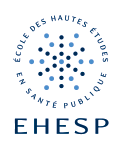
The EHESP French School of Public Health is the leading school of public health in France. EHESP trains top senior public sector, health and social services managers, inspectors and controllers ; it provides postgraduate and doctoral education and conducts research in all major disciplines linked to public health. Thus, EHESP offers a unique combination of professional and research based training courses in French and English language and leads a multidisciplinary network of graduate schools.
Ninety lecturers, grouped into 4 departments, provide training for senior management in health and welfare services, in a national and international context (training programs for healthcare professionals, Masters, post-masters, doctoral degrees and Institution-specific Diplomas). EHESP also offers certificates and more than 400 “short” training programs both in class setting and through distance learning, as well as training courses tailored to the needs of each facility, that are updated each year in various public health fields. Besides, EHESP offers preparatory courses for civil service examinations. The relevance and quality of teaching are an integral part of applied research. Research is carried out by 2 joint labs and 2 research teams, 1 environmental health research laboratory (LERES), research chairs in partnership and a doctoral network.
EHESP has established a wide range of collaborations with public health training and research institutions in high, middle and low income countries, including many European countries, the USA, Canada, Mexico, Brazil, Argentina, China, Vietnam, Singapore, the Lebanon, Tunisia, Morocco, Algeria, Ivory Coast, the Republic of Congo. The EHESP has also developed links with organisations such as the European Union, WHO, IOM, OECD and the World Bank. It provides strategic consultancy, expertise and the development of training programmes in partnership with institutions of different countries
National and Kapodistrian University of Athens
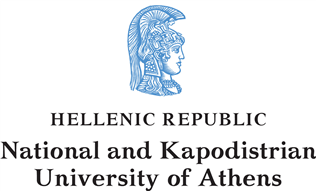
The National and Kapodistrian University of Athens (NKUA) is a research-oriented pub-lic university covering a wide spectrum of scientific fields. Its vision is to promote excel-lence in education and innovation in research, scholarly and other creative endeavours and also be actively involved with local, national and global communities.
Inaugurated in 1837 under the original name “Othonian University”, it is the oldest high-er education institution of the modern Greek state and the first university in the Balkan and Eastern Mediterranean area. In 1932 it was formally renamed as “The National and Kapodistrian University of Athens”, a public, self-governed legal entity, under the auspi-ces of the Ministry of Education, Research and Religious Affairs.
The University consists of eight (8) Schools — Theology; Law; Economics and Political Sciences; Philosophy; Sciences; Health Sciences, Education, Physical Education and Sport Science — and thirty three (33) Departments. Each department offers one Bache-lor’s degree, postgraduate and doctoral programmes.
The mission of the NKUA is to advance knowledge and education in sciences and arts. In all academic units our researchers and faculty strive for innovation and seek to de-velop the passion for excellence as well as the ability to think critically, to contribute in research and innovation and to public policy-making. Internationalization of the Univer-sity and its openness towards our stakeholders is key to collaborating effectively with other institutions and organisations - national and international.
The aim at NKUA is to maximize the benefits of research by advancing fundamental knowledge and contributing to improved public policy, better health outcomes, economic prosperity, social cohesion, international development, community identity, the arts, cul-ture and the quality of life. Research and innovation are integral to academic excellence and a is a priority for the academic community, thus promoting the publication of re-search results in scientific journals, at academic conferences, contribution to books/monographs/chapters in edited volumes and book reviews, etc. NKUA collabo-rates with leading university networks, public sector bodies and business sector units – in Greece and internationally.
KEDE
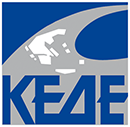
The Central Union of Greek Municipalities (KEDE) is a legal entity of private law representing the first level of self governance in Greece (municipalities). It was established in 1927 during the first Conference of the Mayors of Greece.
Main governing bodies:
- The General Assembly, consisted of all the mayors and other local representatives from the local unions of municipalities
- The Administrative Board, consisted of 31 elecdted members form around Greece
KEDE holds its headquarters in the centre of Athens and employees 35 persons in a modern building with all the necessary equipment to hold official international meetings. It also has scientific advisory bodies: the Hellenic Agency of Local Development and Local Government (EETAA) / Information-Training- Local Development SA (PETA) and the Institute of Local Government (ITA).
Its main objectives are:
- The cooperation between municipalities
- The research and study of issues related to local authorities
- The gathering and processing of data and information, necessary to local authorities
- The training of municipal staff and elected representatives
- The cooperation with relevant international and European institutions and bodies
- The empowerment of local development and economy, environmental protection and social cohesion
KEDE also works in the level of its thematic committees that apply for relevant decisions to the administrative board after the discussions held within their framework on several topics concerning local self-governance such as : civil society, employment and social economy, education and Youth, health and social caring, insularity and mountain areas policy, institutions and equality, rural development, spatial planning, e-governance, National Strategic Reference Framework 2014-2020 ect.
Ethno-Medical Centre (Ethno-Medizinisches Zentrum e.V.)

The registered association Ethno-Medical Centre (Ethno-Medizinisches Zentrum e.V., short: EMZ) is a German non-profit organization operating nationwide and internationally. The EMZ aims at connecting people with different professional, cultural and social backgrounds. As a centre of excellence for health and social inclusion, the EMZ makes healthcare and educational systems more accessible to migrants and refugees. It promotes and supports refugees’, migrant laborers’ and ethnic minorities’ health. It is based in Hanover (Germany) and was founded in 1989. Its members, board and staff are mainly composed of people with migration background, various actors in the sphere of public health, as well as medical research and teaching. Its mission is the empowerment and integration of migrants in the fields of health, social affairs, labor and education. The association also consolidates the competence of intercultural actions of institutions and health professionals by providing training, research and publications.
The EMZ was the first non-governmental organization in Germany implementing programmes on migrant and refugee health in the early 1990s, including the first professional community interpreter service in Germany. The core activity of the EMZ is the project “Health ¬– with Migrants for Migrants in Europe” (MiMi) (see also below). The MiMi project is improving migrants’ and refugees’ access to health services by increasing their health literacy and by capacity building in the field of public health. MiMi´s key technology for social inclusion includes executive education for intercultural mediators, health campaigns in migrant communities, multilingual health guides to explain health systems, related health topics or healthy life styles, networking and evaluation. It is conducted in more than 15 languages and has been implemented in more than 70 cities throughout Europe. The project was subject to a WHO case study and won various awards (e.g. Future Award, Sustainability Award, Prevention Award and Quality Award, European Health Award in 2015).
The EMZ and its work is funded by local and governmental authorities like the German Health Ministry, the Ministry for Social Affairs, Health and Equality of Lower Saxony, the City and Region of Hanover, the Bavarian State Ministry for Health and Care, the Schleswig- Holstein Ministry for Social Affairs and Health, and the Free and Hanseatic City of Hamburg. Furthermore, it receives funding by health insurance funds (“BKK Betriebskrankenkassen” – Federal association for the statutory health insurers), the German Pension Insurance and by several private companies and foundations. From 2008-2011 the EMZ was leading partner of the EAHC project Aids&Mobility Europe.
Kopin
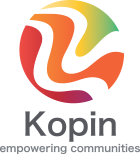
Kopin works for human rights and children’s rights with the aim to empower its beneficiaries as key agents for social change and advancement. It is a hybrid, operating in three interconnected fields: international sustainable development cooperation, refugee support and education.
Set up 16 years ago, it is one of the few professional NGOs working in the human rights field in Malta. It is supervised by a Board of five members, managed by an executive team, has five employees and around 20 volunteers and interns.
Kopin’s team is made up of professionals with diverse backgrounds providing an innovative package of services – Kopin supports marginalised communities where other institutions struggle and provides its services in a sustainable way, is a main provider of Development Education in Malta and one of the few Maltese entities focusing on children’s rights. The organisation is a partner of over 100 institutions in Malta, across Europe and East Africa, ranging from NGOs to ministries, local authorities, universities and international organisations. Kopin envisions a global and inclusive society, where citizens are equally empowered to contribute to a world that is free of poverty and any other forms of injustice.
Our mission is to contribute to the alleviation of global poverty and social injustice by:
- Engaging in sustainable projects with partners from the Majority World
- Providing services to vulnerable populations in Malta with a particular focus on migrant women and children
- Promoting and providing development education and increasing public awareness to mobilise citizens towards participating in the development debate
- Building capacities of our members and partners
- Monitoring political processes and engaging in policy dialogue with decision makers to influence the debate on Maltese and European policies related to development, migration and children’s rights.
Kopin is legally registered with the Office of the Commissioner for Voluntary Organisations (VO/0200).
Ministry of Health-National Health Operations Centre (NaHOC)
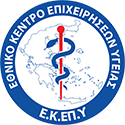
The National Health Operations Centre (NaHOC) or EKEPY as it is widely known, it’s a Directorate under the Greek Minister of Health. EKEPY’s main targets as described by legal law papers are:
- The coordination in every subsystem of the health sector
- Actions relevant to public health matters
- Dealing with urgencies and mass fatalities
EKEPY’s areas of intervention are, in a few words, Crisis Management in the Health Sector, Accidents and Devastations, Pre-Hospital Health Care, In-Hospital Health Care, Primary Care.
After the recent refugee crisis, EKEPY has been named as the main public body that coordinates all health care units and NGOs, in every official or unofficial refugee camp all over Greece.
NaHOC will contribute in the dissemination strategy by offering to the Consortium to benefit from the organization of continuous targeted meetings under the auspices of the Greek Ministry of Health. These meetings will include presidents and directors from all health sector organizations (Health Regions, Public Hospitals, Private Sector’s Hospitals and Medical Schools & Universities) and also representatives from authorities, organizations and NGOs that deal with refugees and migrants. Finally we will be assisting in the development of scientific publications to relevant journals if the results allow for that.
As the main supervisor and coordinator of all healthcare services, NaHOC will attempt to exploit the educational – research capabilities of the system. This will be achieved with the development of publications (e.g. book, journal papers), the organization of sessions within conferences or a targeted symposium
POLIBIENESTAR, Research Institute on Social Welfare Policy

The Research Institute on Social Welfare Policy (POLIBIENESTAR) is one of the research institutes at University of Valencia. Well-known internationally, its main research areas are innovation in social technology, technical advising and training in the social policy field.
Polibienestar is made up of an interdisciplinary team led by Jorge Garcés Ferrer, and more than 100 researchers shape the team. They come from University of Valencia and other 7 Spanish universities and three international universities. It has been doing both basic and applied research on the economic, social, political and technical sustainability aspects of welfare systems. Furthermore, Polibienestar has been advising both the Administration and private companies on the planning, design and implementation of social welfare and sustainable resources and policies.
Areas of research: Health and Social policies, Vulnerable groups, Governance and public administrations, Corporate economics, Smart Cities, Tourism.
Oxfam Italy

Oxfam is one of the most important international confederations in the world specializing in humanitarian aid and development projects, consisting of 17 organizations from different countries who work with 3,000 local partners in over 90 countries to find lasting solutions to poverty and injustice. Oxfam Italy, which acceded in 2010 to the international confederation of Oxfam, was created by Ucodep, an Italian non-governmental organization, which for over 30 years is fighting to improve the living conditions of thousands of poor people in the world and give them the power and the 'energy to build their own future, to control and direct.
Oxfam Italy has chosen an integrated approach between development programs and emergency interventions, campaigns and educational initiatives to improve the living conditions of thousands of people in the world by allowing them to exercise their rights and to build a decent future.
Region of Central Greece
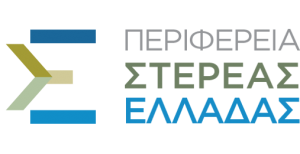
Natural and Demography characteristics
The Region of Sterea Ellada is the second larger Greek region, located in the centre of the country, with major motorway and railway axes connecting North and South Greece. At North it shares borders with Thessaly, at West with Western Greece and at South with Attica. It is surrounded by the Aegean Sea and the Gulf of Evia at the east and by the Corinthian Gulf at the South.
The Region has a population of 546.870 inhabitants, corresponding to 5.07% of the total population of the country. The 33% of the population in Sterea Ellada is urban, concentrated mainly in the departments of Euvoia (210.210 inhabitants) and Fthiotitda (158.220 inhabitants), the 15% is semi-urban and the 52% is rural.
Sterea Ellada occupies a total area of 15,549 sq. km., corresponding to 11,8% of the total area of Greece and consists of 735,8 million hectares of mountain area, 497,1 million hectares of semi-mountainous area and 322,2 million hectares of lowland area. The two main islands of the Region, Evia and Skyros, are pole of tourist attraction.
Sterea Ellada is the industrial centre of Greece, nevertheless it has rural areas too. It is worth noting that only 3% of the total area is residential. The main mountainous area of Sterea Ellada is formed around its centre. Forests cover the 25% of the total regional area, while 2% is covered by water. The cultivated areas of the region occupy the 26% of total area, while the 43% is used in farming activities. The Region is rich in special and rare ecosystems; 18 special environmental sites of the Region are being protected according to the NATURA 2000 framework, while there are 3 Special Protection Areas. Sterea Ellada is famous for its world-renown hot springs and spa.
Social characteristics
Τhe share of the population that is economically active is 33%, from of which 9,4 % works in the primary sector, 51,5% in the secondary sector and 42,1 % in the tertiary sector. The unemployment rate accounts for the 16,1% of the population and lies slightly above the national average. Immigration flows have importantly affected the demography of the region, as the immigrants’ share in the composition of the regional population accounts for 8%, one of the highest in Greece.
Economy
Due to favorable conditions and because of its proximity to Attiki, the Region of Sterea Ellada has emerged as one of the industrial centres of Greece with important industrial and manufacturing activities, accounting for the 46% of the regional GDP. Moreover, activites related to the tertiary sector account for the 43% of the regional GDP and gravitate mostly real estate and public services. The tourism sector, on the other hand, counts up only for the 4,4% of the regional GDP and is less developed than the national average, however, it has great potential for further growth due to the region’s natural hot springs and spa (Kamena Vourla, Edipsos), archaeological sites and geographic location.
The agricultural sector counts up only for the 8% percent of the regional GDP% and is estimated to be subject of further decline in the future. Rural activities concentrate in the production of olive oil, wheat, fruits and vegetables, as well as in the breeding of livestock. Numerous agricultural products of the Region have been enlisted in the Protected Designation Origin EU scheme, such as, the Olives of Stylida, Konservolia of Amfissa and Atalanti, Katiki Domokou (goat cheese), Formaela (goat cheese),Fistiki of Ftiotida and Dry Figs of Kimi. The Region interconnects North and South Greece, not only geographically, but also with major infrastructure and motorways. It is crossed by the main road and rail axes in Greece, also included in the wider European Network of Transports. The transport network of the Sterea Ellada is supported by small regional ports, straits and marinas, yet of low capacity but with potential of further development. Moreover, the location of Sterea Ellada in the centre of Greece provides great potential for the development of a strong transportation network.
Uppsala University - Department of Sociology
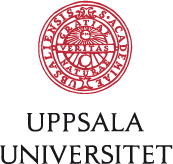
Uppsala University, founded in 1477, is the oldest university in Sweden and all Nordic countries. It ranks among the world's 100 best universities in several high-profile international rankings. The university has nine faculties with various programmes including more than 40,000 students with international frontline research at nine faculties and a variety of diverse educational choices at Bachelor’s, Master’s and PhD levels.
The Department of Sociology at Uppsala University is the oldest department of sociology in Sweden. Its main subjects are Sociology and Social psychology. Undergraduate education is also offered in Sociology.
Verein Multikulturell

Verein Multikulturell – Tyrolean Integration Centre is a non-governmental organisation founded in 1993. We aim to enhance the intercultural dialogue and education. Our main objective is to promote the professional, social and cultural integration of migrants. Our association actively promotes the social and professional skills of migrants in collaboration with the government and other state institutions (such as the Chamber of Commerce), job centres, schools as well as social organizations and societies.
We are engaged in a number of activities and offer a variety of services:
- Multilingual education and career guidance for young migrants and their parents,
- job application training and interview coaching,
- multilingual family counselling and psychotherapy
- certified language and computer classes for adults and youngsters
- intercultural/diversity seminars and training courses for multipliers
- media workstation (radio, film, photography & creative writing workshops)
- international EU projects with several themes like VET, multilingual preschool education, adult, learning, multimedia specifically making films and radio shows for migrants (see above)
- organisation of cultural events.
Throughout the years, we have gained tremendous experience in designing and leading national as well as international projects or in taking up the active role of a transnational project partner.
National Center of Infectious and Parasitic Diseases

The National Center for Infectious and Parasitic Diseases (NCIPD) is a national institution with the status of scientific organization under the Ministry of Health, which aims to develop the scientific foundations of the fight against infectious diseases and methods for its implementation. This determines intensive research regarding ethiology, pathogenesis, immune reactivity, epidemiological characteristics, laboratory diagnostics, treatment and prophylactics of bacterial and viral infections (including nosocomial) and parasitic invasions. NCIPD is the only non-tertiary institution in the country that is accredited since 1999 by the National Agency for Assessment and Accreditation Agency (NEAA) Council of Ministers as a university in the field of infectology with rights to train students and conduct postgraduate training in epidemiology, microbiology, virology, parasitology and immunology and allergy. Long tradition is annually organized dozens of training courses for specialists from home and abroad with several hundred participants.
In NCIPD are all National Reference Laboratory (NRL) in various bacterial, viral and parasitic infections, united in so Laboratory test Complex (LTC), which is only for now in our country accredited by the Bulgarian Accreditation Service (BAS) in 2003 under the European requirements of standard BS ISO EN 17025 for high quality work. 1998 NRL are under constant international external laboratory control of the German accreditation system Instand. NCIPD by national reference laboratories from 1998 held a national external laboratory quality control of laboratory diagnostics performed by all microbiology, virology and parasitology laboratories in the country, with a successful result enables them to conclude contracts with the NHIF.
2007 NCIPD was declared a Collaborating Centre of the World Health Organization (WHO) of the United Nations on epidemiological surveillance of communicable diseases and antibiotic resistance with the task of responding to these trends and training of personnel for the countries of South East Europe and Asian countries former USSR. In 2007, the National Inspectorate was set by the European Centre for Disease Control (ECDC) in Stockholm as a leading responsible national organization etc. "National competent body" in the field of infectious and parasitic diseases. NCIPD, together with the Ministry of Health, performs daily broad anti-epidemic and organizational -metodichna work with highly skilled and expert advice, specialized laboratory diagnostics, organization of workshops, seminars, etc., The issue of specialized scientific and applied scientific journals as Infectology, Problems of Infectious and Parasitic Diseases, newsletter and other informational and educational materials.
In NCIPD is performed laboratory and production activities of several original biological preparations for the needs of our healthcare and export: allergenic products for the diagnosis and immunotherapy of allergic diseases, monoclonal antibodies to determine the blood group substances and lymphocyte markers and preparations for the diagnosis of parasitic invasions. They are produced under conditions of Good Practice has been manufactured according to requirements of the European Pharmacopoeia and standard ISO 9001/9000. NCIPD carried out extensive international cooperation in research activities, postgraduate education and anti-surveillance of communicable diseases with WHO, ETSKZ, the Global Fund at the United Nations, European Union programs Phare, Copernicus, Interreg, Tempus, NATO and a number of foreign universities and institutes on a bilateral or multilateral basis.
All exposed convincingly shows the very important and responsible position that occupies NCIPD in national and international health systems and fully corresponds to the motto adopted and implemented daily by its employees: "In the name of science - for the good of the people." NCIPD is the oldest scientific-practical institute in the field of healthcare in Bulgaria. Created in 1881, immediately after the Liberation of Bulgaria from Ottoman rule, it was the beginning of the modern fight against infectious and parasitic diseases in the country on the basis of the latest achievements of world science. Contributes significantly in this regard the construction and equipment of this building NCIPD with financial support from the Rockefeller Foundation in 1932-1935. Passed more than 125 years of development, won over the years large national and international reputation NCIPD today is a major national unit in the field of health collaborators who develop the scientific foundations and methodological approaches for successful control of communicable diseases - their ethion-pathogenesis , epidemiology, laboratory diagnostics, immunotherapy and specific and non-specific immunization, according to the latest achievements of science and requirements of the WHO and the European Union.
In this regard they have contributed very long tradition, continuity, broad international contacts and many good laboratory facilities in NCIPD, as well as high requirements for specialists working in it. All this makes today NCIPD very authoritative and respected national and international research and applied research institution. Special mention should be made of complex, multidisciplinary approach to solve all scientific and practical problems and tasks in the fight against infectious and parasitic diseases based on close cooperation of specialists from different fields: epidemiologists, microbiologists, virologists, parasitologists, immunologists, chemists, biochemists, veterinarians and others working in the National Inspectorate, which is a guarantee of success.
- Research activity
- Training of students and mainly of graduate and doctoral students in the line of SDO
- Reference laboratory diagnostics and expertise
- Organizational and methodological assistance to HEI and all other health institutions in the country and publishing in the field of infectology
- Production of certain biological products for the diagnosis, treatment and immunization.

